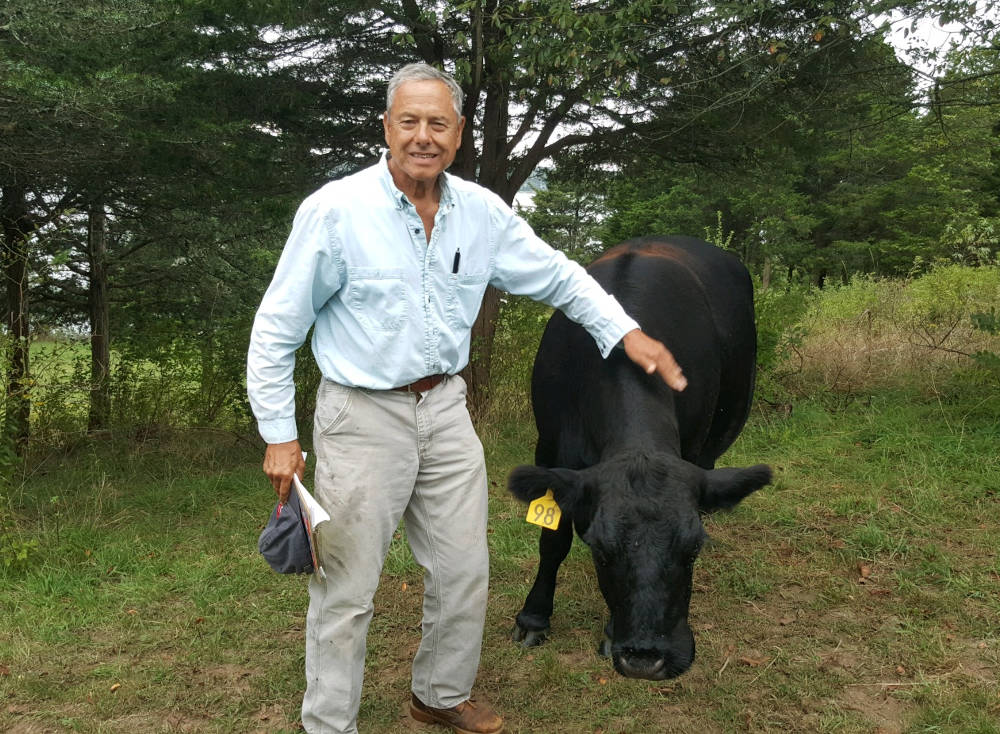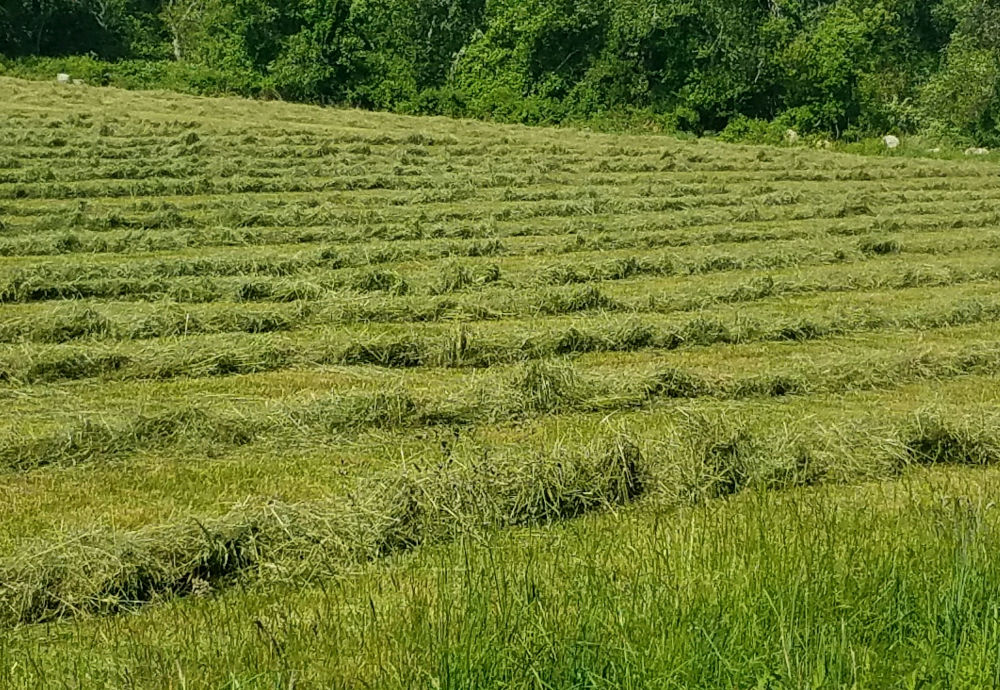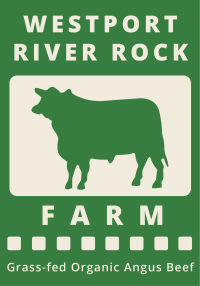How We Run Our Business
Grass-fed, rotational-grazed beef since 1962
Westport River Rock Farm raises grass-fed, rotational-grazed Angus beef. We have been doing this since 1962. Ours is a closed herd, which means that we raise our own calves, bred by our own bull. This way, we are sure of the health of our animals and we are not prone to spread of diseases.
-Paul and Tina Schmid

What Our Cattle Eat
Our pastures and hay fields are a mix of grasses and legumes like clover and alfalfa. The soil is never laid bare, as happens in cornfields, which means less runoff and more capturing of rain. The periodic tramping by cattle hoofs works the manure into the soil, building organic matter. A growing body of science suggests that such ‘healthy soil’ can actually sequester carbon and counteract global warming.

We Grow and Harvest Our Own Hay
We harvest our own hay, with no chemical fertilizers. We do not use growth hormones, antibiotics or GMOs. Since our animals are not fed grain, it takes us 30 months to get the calves to maturity.
Most cattle are raised on grain, primarily corn, which puts weight on much more quickly. But the grain is bad for their digestive systems and they must be fed antibiotics. Science tells us that ingesting antibiotics is bad for us and builds resistance.
Local Distribution and Grass Fed
Graining cattle leads to more fat, which is called marbling by the marketing folks. Nutritionalists tell us that too much fat is unhealthy. Grass-fed cattle, on the other hand, are high in Omega 3 fatty acids which are beneficial in our diet.
We slaughter our animals in October. The meat hangs in a cooler for three weeks, to become more tender. This is known as dry aged beef, a process often featured on the menus of expensive steak restaurants. The butchers then cut down the carcasses and our meat is wrapped in normal supermarket sized portions, and flash frozen. We deliver direct to our customers in November.
